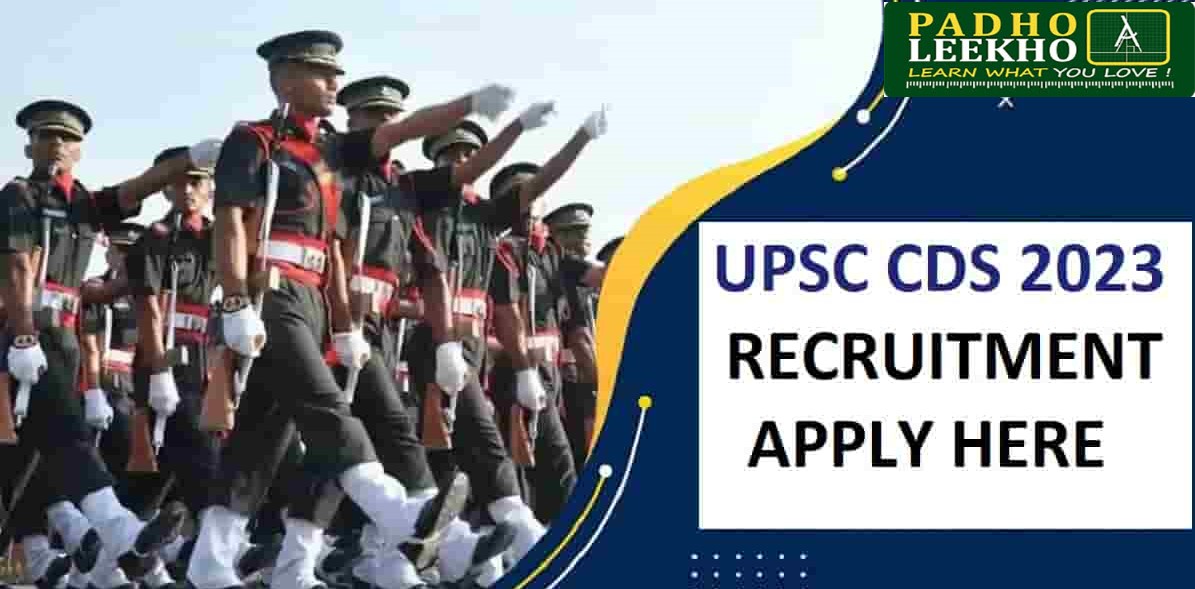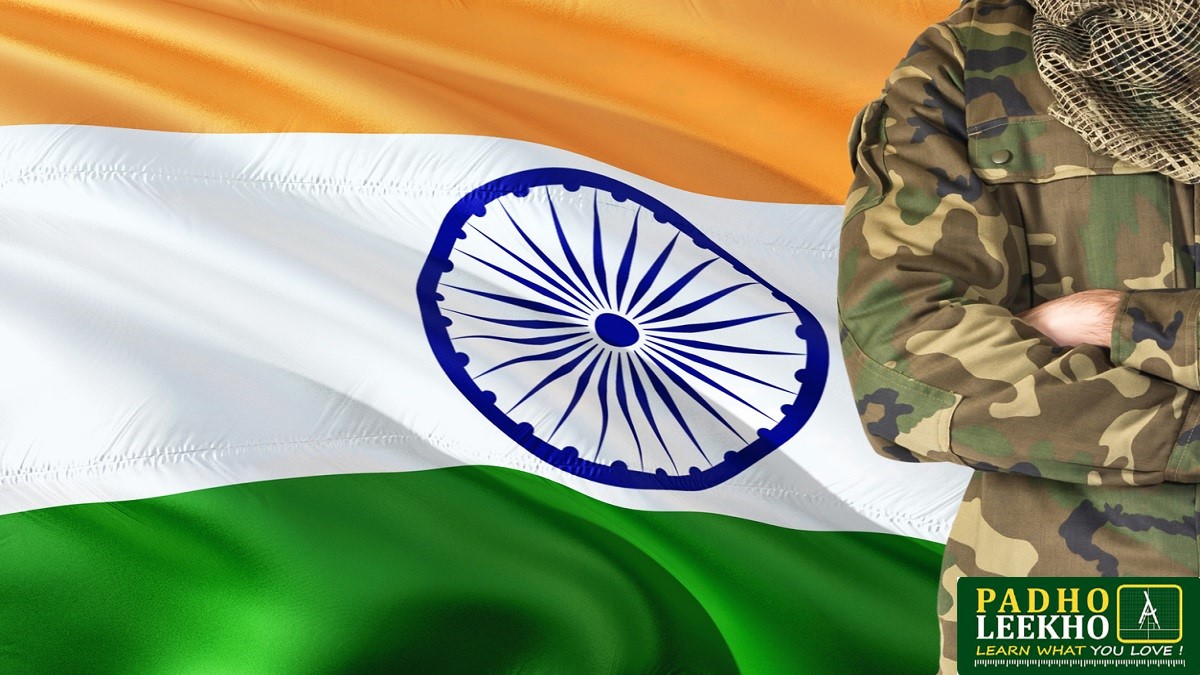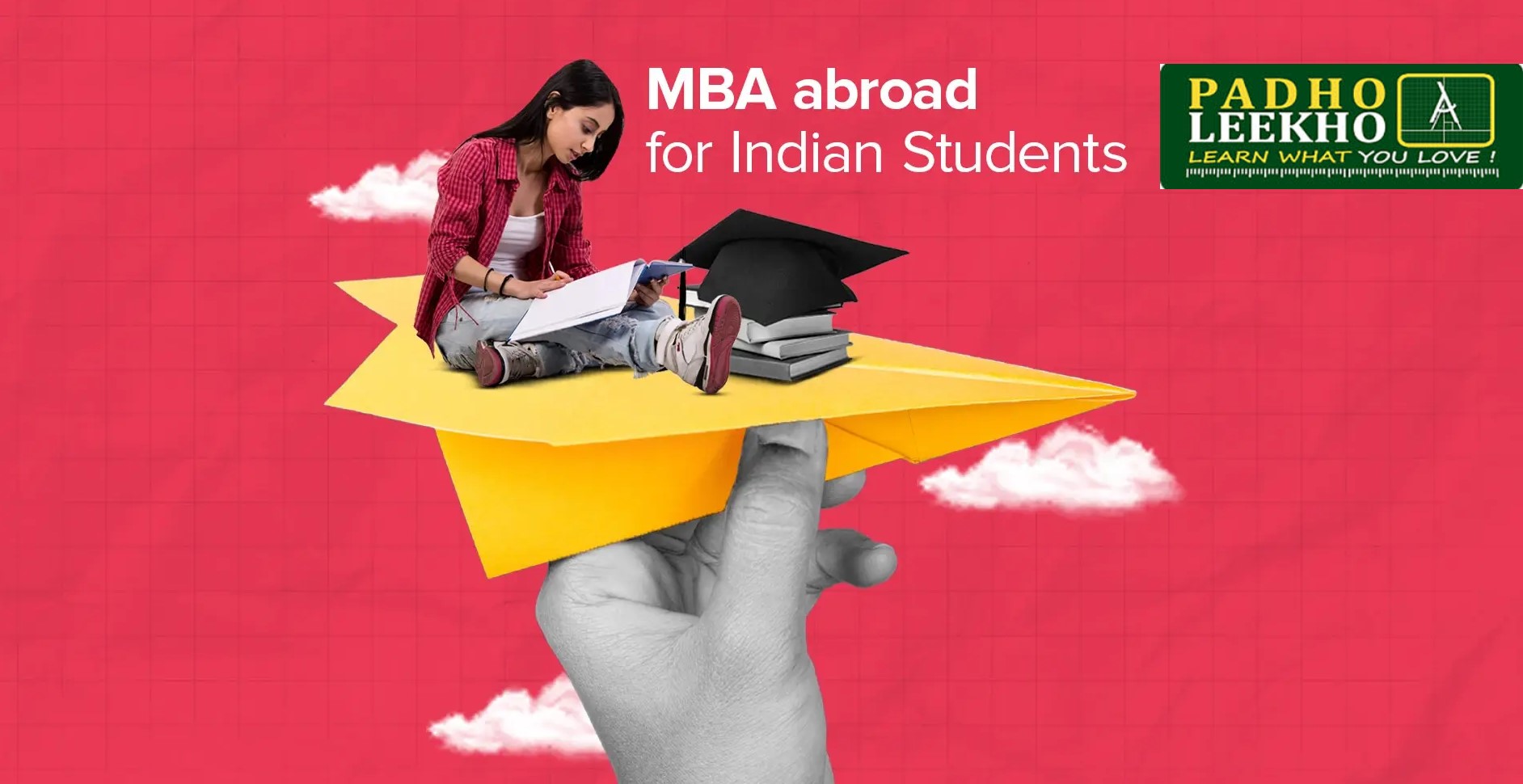CDS stands for Combined Defence Services Examination. It is an examination series conducted by UPSC (Union Public Service Commission) to recruit candidates for the Defence sectors of the country.
Enroll For Best CDS Courses By Padho Leekho
This exam is conducted for various positions & patterns for each exam is different. Know more detailed info about the CDS exam below.
CDS Exam Pattern
The commission offers the CDS exam semi-annually, and these exams are held for admission into the INA, IMA, AFA, and OTA. T
CDS Exam Pattern Highlights
| Exam Mode | Offline |
| Total Number of sectionsin the examination | Indian Military Academy, Indian Naval Academy, and Air Force Academy – 3
Officers’ Training Academy – 2 |
| Language | Hindi and English |
| Total Duration of test | 2 hours (120 minutes) for each subject of the test |
| Total Marks | INA, AFA and IMA – 300 marks
OTA- 200 marks |
| Type of questions | Objective type – Multiple choice questions (MCQs) |
| Exam Mode | Offline exam |
CDS Exam Pattern – Marking Scheme
- The CDS examination is a multiple-choice question test.
- Negative marking is applicable for every incorrect answer or multiple answers to one question.
- For each incorrect answer or multiple answers to one question, 0.33 marks will be deducted.
- No marks are deducted for unanswered questions.
 The following shows the marking scheme of the exam.
The following shows the marking scheme of the exam.
CDS Marking Scheme for IMA, INA, and AFA
| CDS Paper | English | GK | Mathematics |
| Maximum Marks | 100 | 100 | 100 |
| Marks for Correct answer | For every correct answer 1 mark will be awarded | For every correct answer 1 mark will be awarded | For every correct answer 1 mark will be awarded |
| Negative marking | For each wrong answer -0.33 marks will be deducted | For each wrong answer -0.33 marks will be deducted | For each wrong answer -0.33 marks will be deducted |
CDS Marking Scheme for Officers’ Training Academy
The following shows the Marking scheme for OTA
| CDS Paper | English | GK |
| Maximum Marks | 100 marks | 100 marks |
| Marks for Correct answers | For every correct answer 1 mark will be awarded | For every correct answer 1 mark will be awarded |
| Negative marking | For each wrong answer -0.33 marks will be deducted | For each wrong answer -0.33 marks will be deducted |
Join The Best Test Series For CDS Exam By Padho Leekho
CDS Exam Question Paper Pattern
The examination contains 3 sections: General Knowledge, Elementary Mathematics, and English. Each Section has 100 marks. The time duration is 120 minutes (2 hours).
| Sections/ Subjects | Total Duration | Max. Marks |
| General Knowledge | 2 Hours (120 minutes) | 100 marks |
| Elementary Mathematics | 2 Hours (120 minutes) | 100 marks |
| English | 2 Hours (120 minutes) | 100 marks |
Officers’ Training Academy CDS Exam Pattern
The paper for OTA does not include the Elementary Mathematics subject.
| Subject | Duration | Marks |
| English | 2 Hours (120 minutes) | 100 marks |
| General Knowledge | 2 Hours (120 minutes) | 100 marks |
Standard of the Questions
- The Elementary Mathematics paper will be of metric level. The level adopted for other subjects will be set according to the graduation level of any University recognized by the government.
- English: The questions will be drafted to test the candidates’ understanding of the language and how fluent the candidate is in English
- General Knowledge: GK includes knowledge of current affairs and everyday experience and observation. The paper will contain questions on Geography and Indian History.
 CDS Selection Process
CDS Selection Process
The Selection Process of CDS has two stages. They are:
Stage 1 – Written exam
Stage 2 – SSB Interview
CDS – examination pattern of the Written Test
The CDS – examination pattern is prescribed by UPSC. The written exam contains 2 parts:
- For INA, AFA, and IMA the written exam has 3 sections – General Knowledge, Elementary Mathematics, and English
- For OTA the exam consists of 2 sections – General Knowledge and English




 Unlock Exclusive Access To English Reading Test Course Materials.
Unlock Exclusive Access To English Reading Test Course Materials. 












